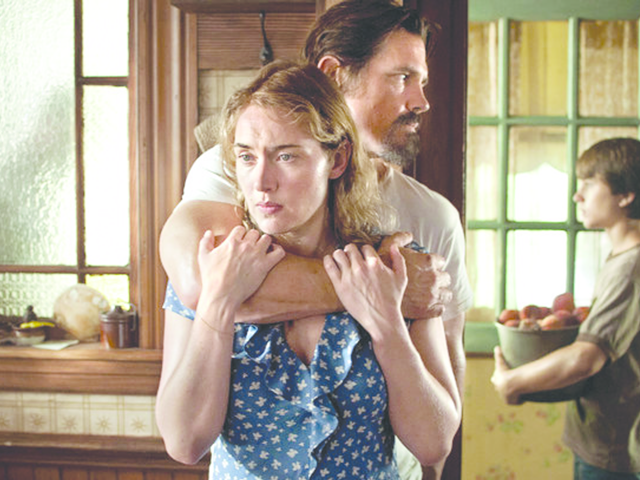Critic's Pick
Bruce Norris’ award-winning Clybourne Park (Tony, Olivier and Pulitzer Prize) employs clever writing and vivid characters to aim squarely at issues such as racism and intolerance that we might think we have moved beyond. It’s a smartly crafted work, one of the most-produced plays across America this season, including at the Cincinnati Playhouse, where it’s currently onstage.
Norris began with the circumstance of Lorraine Hansberry’s 1959 play, A Raisin in the Sun, about a black family seeking to improve its lot by buying a home in a previously all-white Chicago neighborhood. Clybourne Park’s first act portrays those events from the perspective of the sellers of the pleasant 1930s bungalow at 406 Clybourne and their contentious neighbors. Act II jumps ahead 50 years to the same neighborhood, now mostly inhabited by African-Americans but newly trendy — perhaps like Cincinnati’s Over-the-Rhine — where “gentrification” is the flash point. Buyers of the house intend to replace it with one the long-time residents see as a monstrosity. The more things change, as they say, the more they stay the same.
Seven actors from Act I return as different people in Act II. In Act I, Rex Young is Karl Lindberg (in fact, a minor character from Raisin in the Sun), the neighborhood delegate opposed to integration; Caley Milliken is his pregnant, deaf wife. In Act II, Young is Steve, arguing that he and his outspoken wife Lindsey (Milliken) have the right to replace the old house. (Tony Cisek’s set revolves following Act I to reveal the same living room interior after 50 years of deterioration and defacement.)
The backstory of the house — a young soldier back from the Korean War committed suicide upstairs, causing his parents to put it up for a hurried sale — provides a melancholy undercurrent and a tacked-on final scene that seems unnecessary. But otherwise, this production, staged with clarity by Playhouse associate artist Timothy Douglas, presents startling truths about unchanging human nature, territoriality and prejudice — even though a character in 1959 speaks optimistically about change she is sure is coming. Clybourne Park will likely spark spirited post-show conversations for those who see it.
CLYBOURNE PARK, presented by the Cincinnati Playhouse in the Park, continues through Feb. 16.






